
to Hive being
welcome
What is Hive Being, and Why the Name?
You have likely heard talk of a hive mind, where one global mind finds more or less figurative expression in various local minds. Such talk is common enough in nature documentaries, especially ones concerning ants or bees, and in sci-fi programs. Take that notion, at least a loose version of it, and broaden its scope. That will be a decent first step in understanding the title I have chosen both for my Blog and for the first five-volume installment of my magnum opus Made For You and Me, a fragmentary collection of minimalist stanzas from 2016 to 2020.
In alignment with Spinoza (the 17th Century Rationalist to whom I devoted my doctoral studies), I view reality in its totality as a grand hive Being: all entities are but pulsating manifestations of the buckstopping fount of everything, an ultimate being we might call “God” or “Nature” (so long as, out of respect for the capital “G” and the capital “N,” we limit it neither to some anthropomorphic cloud father hurling lightning bolts nor to mere wilderness untouched by human smog). According to the hive-Being view (where reality is one lone superorganism, a monistic—and we might even say unividualist—conception I defend in both my creative and academic capacities), each non-foundational being (each being, that is, whose essence does not involve existence) is an utterly necessitated expression or eruption or exudation of this eternal source—each is, perhaps better put, a mode or manner of being, and so a focal point through which is disclosed, what classical theists sometimes call “being itself” (ipsum esse subsistens): the realness of the real, the being of whatever may be, the sheer activity of being, the very isness of whatever is. This Blog, which duplicates my Substack, throbs as but one among many literary unfurlings of this self-necessitated foundation, this supreme wellspring, of which we—like black holes and broken beliefs, like fractal ferns and flickering flames—are the inevitable stylings.
My Journey
I am an academic who found himself pressured into early retirement by the rising tides of cancel culture. The illiberal scourge of censoring, silencing, and shaming—although always with us throughout our evolution—reached a local peak around 2021. That was the turbulent year my creative pursuits, which the old left once encouraged as a healthy outlet for the stresses of a childhood steeped in poverty and illiteracy, drew the ire of the new safe-space left. A small cadre of self-proclaimed victims and their allies, several of whom continue to berate me years later under pseudonyms as see through as their sexual infatuation, sought to erase me and my heterodoxy. They found support from a wannabe-woke dean, covered in the grand inquisitor robes of our decadent modernity (full-body tattoos) and just itching to signal his commitment to protecting “vulnerable populations” from triggering material (even if just, as it was in my case, off-duty poems “unbecoming for someone calling himself a teacher”). Although I eventually won my due-process case with the help of The Foundation for Individual Rights and Expression, I slunk away from a college that turned its back on protecting freedom of expression and from an institution increasingly intolerant of intellectual diversity.
The wrecking ball to my too-comfy office in the windowless ivory tower came with a silver lining. From the ashes of my professional aspirations rose a phoenix of increased freedom to fulfill the literary calling I have pursued for decades. Reputation concerns never stopped me, even within academia’s sterile halls of conformity. Indeed, my unapologetic defiance, which has long baffled friends and family, no doubt chummed even safe waters—almost as if I were asking for it all along—until the cancel shiver grew too frenzied to hold back its blind thrashings. But now, now I piston the most forbidden territories of human thought with no longer even a twinge of conscience. The newfound freedom means extra time to hone my craft. When not assisting special-needs communities (a day job far more rewarding than freeway-flyer drudgeries), I pursue my literary mission with Dionysian fervor.
Call for Co-Conspirators
This space, my digital sanctuary, showcases the fruits of my mission. Think of my posts, even those linking to my publications, as works in progress. I want your input, unflinching brutality included. Each post begins with an invitation to action: “Let’s workshop this [draft about x, y, z].” Your contributions, whether through public comments or my contact page, help hammer scraps of ore into polished blades fit for magazine publication.
Your input is valuable, even if you are neither a writer nor a reader of literature—twin disciplines dying by the cyber nanosecond. Sometimes—even if at the risk of uttering banalities—an outsider’s fresh vantage can pierce the veils of convention to reveal what insiders miss. It often takes an outsider to make us even think to question our ingrained presuppositions and attitudes. I stand by the hygienic value of contagion. That is one reason I advocate so strongly for intellectual diversity and freedom of expression. And that is also one reason I was so harrowed by the anti-diversity swell of cancel culture in academia (an institution that should be the utmost caretaker of such values)—harrowed especially insofar as that swell masqueraded under the gaslighting guise of “diversity”).
You will witness the breathing evolution of my writings over time. To track these changes, I label each revision by round: “ROUND 2,” ROUND 3,” and so forth. Each piece undergoes continuous refinement based on your feedback and my own revisitations. Sometimes changes will mar the work. That is the risk of creative tinkering as a finite creature. I hope you will alert me to missteps. After many semesters of university writing workshops, one rule has impressed itself upon me: when someone senses a flaw, something almost always needs to change—even if, yes, the proposed solution misses the mark (which often it does). From a quick look into the archives, accessible here, you can see how much I have benefited from your feedback so far.
My Hope
Sharing drafts can be daunting. But showing you the ravaged and unperfumed real deal unfiltered by makeup (stuttering starts and falsities, awkward line breaks and clumsy word choices, grammatical errors and misspellings)—that not only makes my work more relatable, but helps me refine things through your input. I hope the unfiltered look at the raw process of fumbling, rather than just the polished product, also helps other writers develop their craft. Imperfect works often instruct more than perfect ones: whereas the perfect ones tend to have a grace by which they slip inside us without activating our scrutiny, the imperfect ones—especially the near perfect ones—show us glaringly what not to do.
People laugh at me, seeing—in my tilting at the windmills of literary excellence—a Don Quixote clunking around in Arthurian armor in a post-knight era. I am not naïve. I am well aware of the diminishing ability to read, let alone well: slowly and deeply, with gratitude. I am also aware that my style, which often nests subpoints within larger points, never waters down virtuosity for the sake of mass appeal. I watch readers stumble over my sentences, unable to unlock even just the music of the envelope let alone the semantic meat within, which—given my tendency to flashlight through the darker facets of human nature (the addicts, the miscreants, the abusers among us)—only adds an additional alienating layer of difficulty). Beholding these depressive scenes of even supportive family members getting bucked off my syntactic bronco makes me feel like a dinosaur who should get a hint and, if not succumb to the brain rot of skibidi-toilet speak, just hang himself already. Even though the decline in linguistic background and grammatical voltage makes my compositions seem quixotic in a world binging Netflix and TikTok, I persist—raging against the dying of the light—by some internal compulsion to celebrate the richness of language and thought.
My hope is that, despite social media’s unparalleled power to farm our attention, people never forget the unique power of writing. Beyond unveiling hypocrisy, teasing out complex implications, and detailing the commonalities between even the most alien phenomena, writing offers something we need today—trapped in agoraphobic cyber bubbles only thickened by the Lyme dangers of forests and the COVID dangers of cities—perhaps more than ever. Granting us rich access to the first-person perspectives of others (to how things feel to them), writing serves as one of humanity’s best tools for combating loneliness. It allows us to linger, broadly and deeply and at high resolution, within the inner lives of others in a way that other arts can only suggest.
What to Expect
My work spans a broad spectrum: from metaphysical discourses on free will and determinism and the ontology of holes to the ephemera of western culture (whether the childhood impacts of the hypersexual mono-image of black woman as squirting twerkers or Terrence Howard’s sham revolution of mathematics). Some tight and minimal, others free-flowing sprawls; some heady and abstract, others emotional and imagistic—my inkwell musings, which often blend scholarly rigor with a dark humor from both high and low culture, aim to capture the visceral intensity of our personal and social and ultimately existential predicaments.
By no means can I deny that drug abuse, sexual assault, and the tales of the broken and the damned loom large in the tag cloud of my work. My writing will never be a paradise of easy truths and comforting lies. It will challenge you, provoke you, and at times even repulse you. I offer no apologies for the monsters I unleash. They are as much a part of us, at long root scared rodent mammals scurrying in the shadows of dinosaurs, as our noblest aspirations.
But make no mistake. It is not all downer darkness. The archives are my receipts. You will find pieces exploring the pursuit of authenticity in a media-saturated world, the search for meaning in an indifferent cosmos, and the celebration of beauty in both the sublime and the profane. I locate much of my inspiration, in fact, in novelists like Dostoevsky and poets like Ted Kooser—writers unafraid to pursue moral agendas or risk Hallmark sentimentality in an age that often sneers at sincerity.
Be they satirical dissections of modern social dynamics or poignant poems about addiction or academic articles on moral responsibility, my goal is to provoke thought, evoke emotion, and foster meaningful dialogue. Fear has not and will not stop me from challenging humanity’s fundamental taboos (like bestiality and cannibalism) or self-reflecting into the dark chaos of the subconscious, even if that means exposing the Jungian shadows—the inner Goebbels—lurking within us all!
Expect posts each day, no day missed. Donations are welcome, but I impose no paywall: it feels wrong to charge for art, especially given our date with obliteration. Feel free to explore what amounts to, at the time of writing this, close to a thousand pieces of poetry and prose here. That should give you a sense of what awaits.
Join me—specula holstered—on this literary odyssey into the public and private nooks of the hive Being. Let us navigate the labyrinth of creation together, confronting our demons and even slaying our darlings if we must. Let us dance on the razor’s edge between the sublime and the profane in pursuit of an elusive literary perfection never to be confused—as it has been confused in our declining civilization—with the pursuit of popularity or likeability over truth.
tag cloud
- poetry
- literature
- literature community
- poem
- literary
- American literature
- writing
- creative writing
- poetry community
- Michael Istvan
- Istvan
- perception
- defiance
- suffering
- existential poetry
- dissociative
- poet
- existential
- healing
- human
- sex
- adolescence
- power
- art
- artist
- mortality
- evolution
- campus warrior
- God
- death
- darwin
- Nietzsche
- substance abuse
- sensual
- Earth
- resilience
- love
- hardship
- anxiety
- Life affirming
- parenthood
- meditation
- crack
- sexuality
- murder
- prison
- parenting
- disease
- love letters
- vines
- christianity
- rape
- junkies
- religion
- faith
- hoodlum
- teen
- worship
- thugs
- Biggie
- islam
- hypocrisy
- muslims
- babies
- psychoanalysis
- pound town
- feet
- baby feet
- woke
- taboo
- care
- cops
- abuse
- olympics
- blm
- horse
- dread
- dysmorphia
- homosexual
- gymnastics
- poverty
- mental health
- addiction
- repression
- hypermasculine
- teacher
- poison
- transgressive
- social justice warrior
- fatherhood
- father
- suicide
- drugs
- philosophy
- plastic surgery
- music
- safe space
- artistry
- asian
- handjob
Posts

Sweatmeats
This work stages a rigorous excavation of grooming as both ritualized performance and institutional outcome, using the case of clerical abuse not as aberration but as lens into the mechanics of systemic power. What distinguishes this text from most treatments of abuse is its absolute refusal of moral shorthand: the reader is not granted easy disgust, nor comforted by retrospective condemnation. Instead, the piece offers a forensic phenomenology of seduction — a procedural account of how vulnerability, charisma, ritual, pedagogy, and social insulation congeal into the conditions necessary for intersubjective capture. At every level, power is aestheticized as care, and predation masquerades as mentorship, mirroring the broader historical symbiosis between sanctity and control.
The piece’s refusal of a simplistic victim-perpetrator binary allows for a hard-won psychological realism: the child’s attention, validation hunger, and adaptive affection are neither pathologized nor sentimentalized. These are shown to be developmentally plausible responses to sustained grooming, not “proof” of complicity but evidence of how deeply survival itself reshapes agency. The relationship’s slow shift into apparent mutuality — domestic routines, reciprocal trust, even a kind of shared intellectual and erotic language — demonstrates that coercion need not look like force; it often looks like love, precisely because that is what the child has been taught to seek through availability, access, and approval. As such, the text poses the devastating question: what becomes of identity when its architecture is laid brick by brick in the edifice of abuse?
Structurally, the piece adopts a form of cumulative procedural realism that mirrors the long-game methodology of grooming itself. The rhetorical strategy is not confession, catharsis, or accusation, but clinical descriptive saturation — a style that substitutes forensic attentiveness for moral posturing. This choice radically destabilizes audience position: rather than occupying the safe role of outraged observer, the reader is forced into complicity with perception. We witness not only what occurs but how it unfolds, and how the very structures of authority, poverty, charisma, and religious affect are weaponized to blur the line between intimacy and violence.
Rather than collapsing into fatalism, the final third of the piece presents the aftermath not as recovery or damnation, but as identity continuation. The survivor remains tethered — not just emotionally, but ontologically — to the architecture of their abuse. The ultimate perversion is not physical, but metaphysical: love, memory, and survival are so deeply entangled with the original transgression that no clean separation is possible. The groomed child becomes an adult who must forge meaning out of the materials used to exploit him — which may include devotion, ideology, and even political activism. In doing so, the piece demonstrates the deep ontological ambiguity that remains when trauma becomes indistinguishable from formation.
Meta Description:
A forensic phenomenology of institutional grooming and affective dependency, this piece examines how vulnerability, charisma, and ritual co-produce abusive intimacy — and how identity persists even when built from the architecture of coercion.
Keywords:
institutional grooming, clerical abuse, affective manipulation, predator-prey intimacy, power and ritual, trauma ontology, childhood agency, domestic seduction, ecclesiastical authority, survivor complicity, long-game predation, intersubjective capture, psychological realism, post-traumatic continuity, sociocultural grooming ethics, identity formation through abuse

Holy Grail
Holy Grail functions as an unrelenting psychoanalytic tableau—specifically, a dramatization of the traumatic loop, where the subject compulsively returns not to mastery but to the eroticized debris field of unmastered violence. Anchored in Freudian repetition compulsion and later reformulated through trauma theorists like Cathy Caruth and Bessel van der Kolk, the poem’s central figure embodies the paradox wherein the traumatized subject becomes erotically fused to her own wound. The speaker spares us the alibi of therapeutic recuperation and instead frames reenactment as libidinal jouissance—“a hyperarousal kink”—laying bare the drive not toward healing but toward self-subjugating spectacle.
The spatial structure of the poem—the dive bar, the dumpster—maps desire onto degradation, where public and private collapse into an exhibitionist hellscape. Clothing is minimized to signal a weaponized visibility (“no panties / to dampen the pheromonic updraft”), a form of erotically tactical exposure that rewires victimhood into a performative dare. The subject's embodiment becomes at once signal and site of desecration, the mirror reflecting not self-recognition but objectification internalized and weaponized as fetish. The speaker’s irony (“let us not kid ourselves”) punctures the veil of liberal trauma discourse, refusing the safe language of victimhood and instead exposing a psychodynamic economy wherein consent, revulsion, and ecstasy braid together in a sadomasochistic ouroboros.
The poem’s second movement links this reenactment to racialized comedy (“Def-Comedy-Jam comedians / roasting white people”), suggesting a shared affective territory between abjection and parody, wherein laughter emerges as both disavowal and defense. The subject, like the comic, heckles from the periphery, weaponizing stereotype and turning vulnerability into provocation. Slurs are hurled as both boundary tests and invitations to transgress, part of the speaker’s assault on normative sexual scripts.
At the poem’s climax, prayer and parody collapse: the subject seeks not love or recognition, but obliteration (“headbutts,” “liver shots”), imagined as the only path to re-accessing the originary jouissance of her trauma. “Stop” and “No” become not refusals but ritual components of the fantasy, the symbolic scaffolding of a desire that disallows safewords. Her agency exists only within the grammar of submission, coded by the language of hope (“her only legitimate hope”) and yet placed outside any redemptive trajectory. The titular Holy Grail, then, is not healing but a sip of ecstasy from the dark chalice of psychic annihilation.
Meta Description:
An unflinching portrait of trauma reenactment as erotically inflected compulsion, this poem interrogates the porous boundary between victimhood and desire, resistance and ritualized submission.
Keywords:
trauma repetition, hyperarousal, jouissance, eroticized degradation, reenactment compulsion, sexual psychodynamics, sadomasochistic ritual, psychoanalytic poetics, performance of victimhood, abjection as agency, gendered spectacle, ironic provocation, embodied prayer, post-traumatic erotics, fatal ecstasy
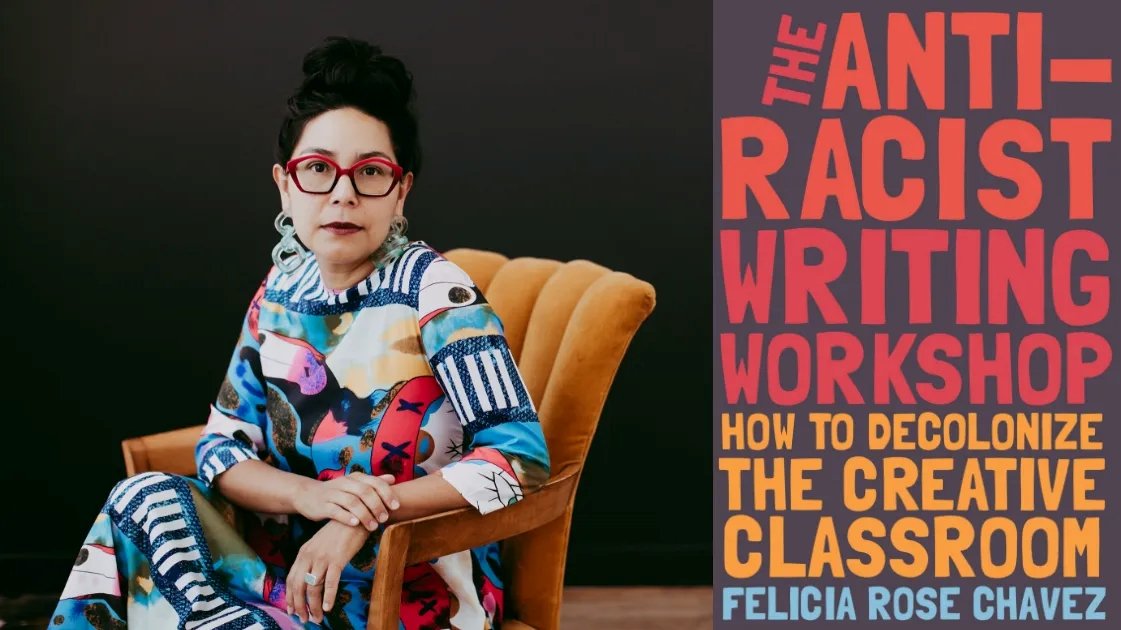
To Whom
“To Whom” operates as a sharp satire of institutional speech surrounding identity politics, artistic expression, and the contemporary academic regime of “equity.” It adopts the form of an official university letter — complete with the sterile, bureaucratic diction of diversity departments — but imbues that form with ideological extremity, exposing the contradictions and authoritarian tendencies that arise when institutions attempt to enforce moral hierarchies via identity-based frameworks.
At its heart, the text interrogates and explodes the logic of standpoint epistemology, wherein truth is no longer evaluated by criteria of coherence, evidence, or argumentative rigor, but rather by the social identity of the speaker. In this framework, Mario’s racial and gendered identity (white, male, cisgender) functions not merely as a context for his work, but as a disqualification from the right to produce certain types of artistic content. His personhood becomes, by bureaucratic fiat, inherently oppressive, such that even when his art mirrors the tropes celebrated elsewhere — particularly in drag performance or hypersexual female rap — it is reinterpreted as “predatory,” “punching down,” or “r*ping the Black body.”
The satire’s rhetorical strategy is subtle in its mimicry: it does not adopt an obviously exaggerated voice, but rather inhabits the real tone and idioms of academic DEI (Diversity, Equity, and Inclusion) bureaucracies. Terms like “moral currency,” “resistant to training,” and “problematic optics” are not invented caricatures but lifted directly from the language of institutional governance, particularly in the humanities and social sciences. The reference to “fair discrimination” — itself a profound oxymoron — reflects how the equity framework redefines justice as proportional reallocation of speech rights, visibility, and opportunity according to identity markers rather than behavior or merit. The claim that Mario’s writings “demoralize” by their very existence is not justified with reference to content, only to authorship — an inversion of liberal humanist values of universality, dialogue, and content-based critique.
The deeper irony is that Mario is not, in fact, violating norms by being transgressive. He is being punished for violating a new orthodoxy — one which permits transgression only by sanctioned identities. The university's support for drag shows and sexually explicit performances by marginalized artists is held up as “community enrichment,” whereas similar content from Mario is treated as “hair-raising,” “predatory,” and requiring removal. The text thus maps out a double-bind in which the very ethos of expressive freedom is hollowed out, re-inscribed within a framework that makes freedom conditional on background.
Equally notable is the document’s use of racialized moral accounting: Mario is said to possess “negative moral currency” due to historical white supremacy, slavery, and structural injustice. The invocation of “the horrors of the Middle Passage” as moral ballast against any defense he might raise illustrates how historical trauma is mobilized to override all considerations of artistic intention or the internal diversity of experience even within categories like “white male.” No acknowledgment is made that Mario may come from poverty, abuse, or marginalization of other sorts — his identity renders such possibilities invisible. This flattening of complexity, wherein power is treated as an ontological constant rather than a shifting and situational phenomenon, mirrors the zero-sum frameworks of Maoist cultural revolution and other ideological purges throughout history.
Furthermore, the language of therapeutic intervention (“training,” “retreats,” “resistant to growth”) casts Mario as a sort of moral defective in need of correction — a familiar pattern in totalizing ideological systems. The desire for him to “Do Better” — capitalized, as if a religious commandment — mirrors the evangelical imperative to confess and repent. But in this case, the standard of repentance is unclear and ever-shifting: Mario is punished for content that resembles, and even quotes, widely accepted mainstream culture. This marks the Kafkaesque quality of the satire: Mario is accused, tried, and sentenced without clear charges or criteria, except that his very identity disqualifies him from innocence.
This disciplinary logic is not only oppressive, but also reveals the contradictions of progressive ideology when removed from universality and placed in a purely identitarian register. The piece does not call for a return to conservative moralism; rather, it points out that the same puritanical logic — with its suspicion of artistic expression, its redefinition of harm in ever-expanding ways, and its obsessive boundary-policing — now animates sectors of the Left, particularly within academic and cultural institutions. The moral panic about Mario’s writing mirrors older fears about pornography and obscenity, except that now the concern is not about sexual content per se, but about who is allowed to create and disseminate it.
By adopting the format of an institutional document, the text drives home the fact that these are not fringe opinions but mainstream positions in today’s cultural gatekeeping apparatus. Its power lies in its mimicry of language — in the way it dramatizes how administrative culture can weaponize moralizing jargon to silence dissent and flatten art into mere propaganda. Ultimately, “To Whom” forces the reader to confront the question: Can a culture survive that no longer judges expression by meaning, only by authorship?
Meta
This piece is a dramatized exposé of how expressive license is now distributed along identitarian lines rather than artistic or moral substance. It functions as a brutal lampoon of how the equity-based reorientation of institutions permits — even demands — discrimination, but frames it as justice. The paradoxes it surfaces are not abstract but lived: who gets to say what? Who is protected, and who is punished, for the same utterance? The piece lays bare the failure of procedural liberalism to withstand the institutional capture by ideologies that reject neutrality and universality, replacing them with a theological structure of inherited guilt and selective expiation. In effect, it offers a contemporary Book of Job — except that God is an HR director, and Job is a white male artist told that suffering is his birthright and repentance alone is not enough.

Mario Mangione
Mario Mangione is a vast, psychosexual-ontological autopsy of American culture in its most performatively liberated yet ideologically punitive mode. Structured as a feverish confessional-critique hybrid, the work mounts a scathing and relentless inquiry into the contradictions of our current sexual-cultural regime—a world where grotesque hypersexuality is aestheticized, monetized, and algorithmically disseminated, while those who merely reflect or satirize this spectacle, especially from the “wrong” positionality (white, male, heterosexual), are castigated or even expunged.
This work is not merely transgressive—it is diagnostic, functioning as a paranoid yet philosophically credible case study of what happens when Enlightenment categories of autonomy, erotic freedom, and identity collapse into each other under late-stage neoliberalism. Through Mario, the protagonist (and perhaps stand-in for the author), we encounter a tragic consciousness formed in the crucible of both working-class male dispossession and elite academic training, where the tools of critique—Freud, Derrida, Foucault, Žižek, DFW—are weaponized against both others and the self in a desperate attempt to regain footing in a cultural ecology defined by algorithmic virality and ever-shifting norms of offense.
Sex here is not merely the topic; it is the ontological condition. The text posits eros as both evolutionary inheritance and hypermediated spectacle, where libido—once sublimated into religious awe, artistic refinement, or interpersonal sublimity—is now unmoored and mutating into commodity, status marker, political gesture, and threat. It is a world in which twerking, OnlyFans, Cardi B, drag brunch, and gang-rape porn bleed indistinguishably into one affective saturation—while linguistic or artistic gestures that describe, parody, or merely process these phenomena are policed with hypocritical zeal.
The piece rigorously critiques the Orwellian semiotics of progressivism, where words like “diversity,” “empowerment,” and “safety” become euphemisms for censorship and scapegoating. In this landscape, Mario’s persecution becomes both farcical and archetypal: he is the white-male Other made object of cultural catharsis, sacrificed to maintain a therapeutic simulacrum of justice. His academic excommunication for “inappropriate content” is revealed as a political ritual—staged by the very same institutions and individuals who propagate the most exploitative forms of hypersexual content under the banners of empowerment or artistic legitimacy.
At its most daring, the work advances a Nietzschean diagnosis: that our culture's “liberatory” embrace of sex is not emancipation but decadence; not a radical openness to embodiment, but a simulated carnival concealing a death-drive, a self-annihilating despair masquerading as liberation. Yet the narrator resists conservative nostalgia or religious authoritarianism. If anything, the voice oscillates between libertine and ascetic, unable to resolve its metaphysical vertigo, yet equally unable to lie.
Philosophically, Mario Mangione touches on nearly every major concern of postmodern thought: the implosion of the public/private divide; the return of the sacred in the profane; the death of grand narratives; and the impossibility of stable subjectivity in a mediatized, performative society. What makes it singular, however, is its refusal to signal any obvious political allegiance. Neither anti-woke screed nor liberal self-flagellation, it seeks instead to stand at the edge of the event horizon and describe the gravity’s pull.
Stylistically, the prose channels a range of high-density traditions: the paratactic surrealism of Céline, the hyperanalytic narratology of David Foster Wallace, the grotesque satire of Rabelais, the tragic confession of Dostoevsky. The rhetorical speed, vulgarity, and syntactic saturation serve not as ornament but as atmosphere: we are inside the fevered mind of a man unraveling. The density is deliberate, a mimetic enactment of the cultural condition it critiques: overstimulated, exhausted, drenched in libidinal detritus.
If Mario is a pervert, he is the pervert produced by the system—the pervert who reflects its logic too clearly. And if his art repulses, it may be because it renders the unconscious of our culture legible. It may be, in fact, that Mario Mangione is among the few works of our time willing to drag that unconscious into the surgical light without either sanitizing or sermonizing it.
A sweeping, incendiary cultural critique in the form of a confessional monologue, Mario Mangione confronts the sexual hypocrisy of the contemporary West with surgical philosophical precision, unflinching prose, and transgressive daring. Both a document of personal collapse and a polemical portrait of civilizational rot.
hypersexuality, censorship, scapegoating, free speech, white masculinity, Nietzschean critique, post-liberalism, sexual politics, cultural studies, psychoanalysis, David Foster Wallace, trauma, eros and death drive, academic hypocrisy, digital spectacle, identitarianism, postmodern ethics
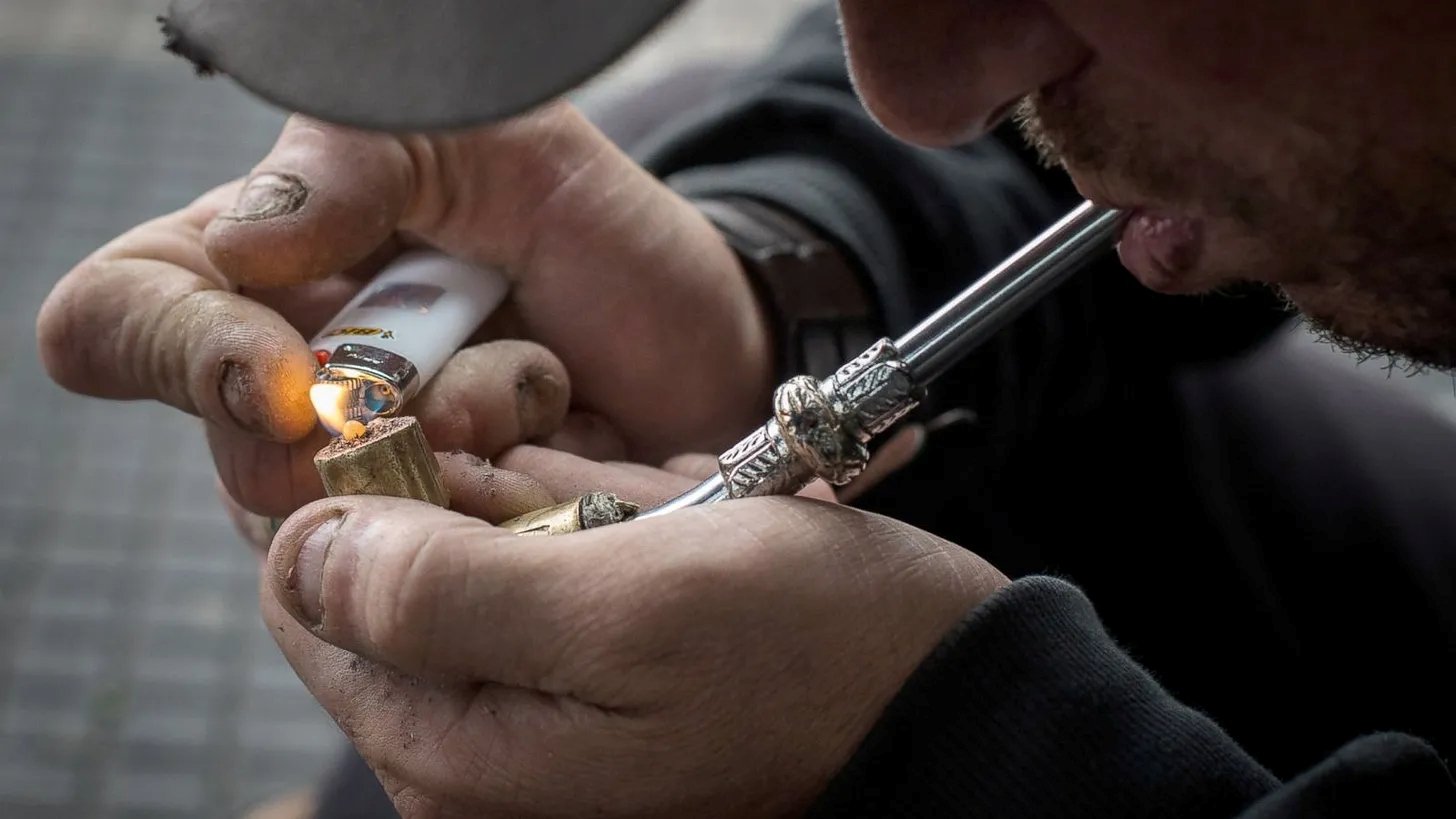
Mirror Firewall
"Mirror Firewall" probes the psychology of dissociation and projection in the context of addiction and homelessness. The speaker, themselves a user, experiences a moment of internal rupture: despite being only “several blocks” from their own habitual post, they mutter a dehumanizing phrase—“‘nother / damn hobo”—at another figure marked by similar degradation. The poem enacts what psychoanalysis might call a split defense: by outwardly expressing disdain toward someone recognizably like himself, the speaker erects a psychic “firewall,” protecting against the horror of self-recognition. The mirror here is not literal but symbolic—a refracted image of his future or present—held at bay through contempt.
The title underscores this defensive architecture. A “firewall” (in computing or metaphor) blocks unwanted intrusion. Here, it fends off the painful acknowledgment of sameness. The intrusion that threatens the speaker is not physical but existential—his vision of the other man swings “left-right” in his peripheral awareness, making the threat of identification feel like a looming hallucination, “dream distance” on the cusp of collapse.
The enjambments and spacing mimic the mental disjunction: flinching perception, disavowed empathy, and survivalist contempt. In suggesting that one’s most hateful projections are often directed at what most closely resembles the self (a fact too painful to own consciously), the poem reveals the emotional and perceptual mechanics that maintain identity under conditions of shame and collapse.
Meta Description:
"Mirror Firewall" examines the dissociative mechanisms of addiction and homelessness, capturing how contempt for others can function as a psychological defense against self-recognition and collapse.
Keywords:
addiction, projection, homelessness, identity defense, psychoanalysis, late-capitalist urban despair, self-other split, contempt as defense, mirror trauma, crack use, poetic dissociation.

Gig Economy Tonsils
"Gig Economy Tonsils” is a haunting commentary on the unending cycles of labor, addiction, and the dehumanization of the working class within the modern economy. The title itself evokes a tension between the body’s biological needs—like tonsils, part of the immune system—and the disposable nature of labor under late capitalism, where even our organs might feel like they are consumed by the demands of a ‘gig economy.’ This reference to tonsils hints at something once vital but now taken for granted or removed, much like the human spirit eroded by the pressures of endless toil and addiction.
The poem immediately confronts us with a bleak worldview. "No retirement in living sight, their manta ‘shit, ain’t none for eating either’" suggests that for the poem’s subjects—likely fentanyl-addicted laborers—there is no respite, no end in sight, no retirement from their lives of grind. The concept of retirement, typically a hopeful goal at the end of a working life, is inverted here, with the drug addicts rationalizing that there is no retirement from eating, so why should their addiction be any different? The poem cleverly critiques this rationalization, showing how addiction becomes another form of labor, one they can never escape because survival itself demands constant consumption. Just as eating is essential for life, so too does addiction become essential for enduring the drudgery of existence.
Further, the drug use is portrayed as a product of systemic neglect, captured in the line “Xmas, Easter, just hollow markers of a world in withdrawal." These major holidays, usually associated with family, renewal, and celebration, are rendered meaningless, mere markers in a calendar devoid of meaning. The juxtaposition of sacred holidays with the phrase “world in withdrawal” draws attention to the widespread emotional and physical withdrawal from life itself that accompanies addiction and endless work. The poem suggests that these traditional markers of meaning have been hollowed out by a society that prioritizes profit over people, leaving behind a populace that grinds through their lives in a fog of fentanyl and empty celebrations.
The poem also reflects on the nature of survival in a capitalistic society that never allows for rest. The fentanyl-addicted subjects are “grinding now triple shifts to stay falling,” a vivid metaphor that highlights how the endless hustle and gig economy mentality extend even to the world of addiction. These addicts, like gig workers, must constantly hustle just to survive, but rather than upward mobility or stability, their efforts lead only to a slow fall. They orbit life as if satellites, “not sharply enough to crash.” The satellite imagery underscores the sense of detachment and isolation, drifting through life in an endless, futile orbit, never quite crashing but always spiraling downward. This speaks to the nature of addiction and late capitalism alike: an unbreakable cycle that consumes both the body and the spirit, with no final conclusion—only slow decline.
The poem touches on the deep societal failure to address this condition. While drug addicts are dismissed and forgotten by society, this poem insists that their experience is emblematic of a much larger crisis: one where work, addiction, and survival are indistinguishable. The comparison between addiction and the basic need to eat blurs the line between necessity and vice, showing how even our most essential human functions have become entangled with the destructive forces of labor exploitation and capitalist survival mechanisms.
In sum, “Gig Economy Tonsils” exposes the interconnectedness of addiction, labor, and survival in a world where there is no final rest, no redemption from the grind—whether that grind is work or addiction. The poem deftly critiques both the personal rationalization of addiction and the systemic forces that create an endless cycle of consumption, where even drug use becomes another form of labor in a life with no retirement.
addiction in capitalism, gig economy and addiction, labor as survival, endless grind, perpetual addiction cycle, drug use rationalization, survival under capitalism, fentanyl addiction and labor, consumption and capitalism, systemic failure and addiction, satellite imagery in addiction poetry, capitalism and drug dependency.

My Father's Resume
Michael Anthony Istvan Jr.’s poem "My Father’s Résumé" presents a poignant meditation on family, decay, and the futile attempts to reshape a broken life through the lens of societal expectations. The poem juxtaposes the harsh reality of the father’s existence with the artificial construct of a résumé, revealing deeper truths about identity, worth, and the struggle for validation.
The poem begins with the narrator undertaking the task of typing his father’s résumé, an act that initially seems straightforward but quickly becomes fraught with complexity. The imagery of a "rope tossed into his moldy tent" evokes a sense of rescue or aid, implying that the résumé might serve as a lifeline for the father. This metaphor underscores the father's desperate situation—living in a state of decay, both physically and emotionally, in the woods by the Hudson River. The father's environment is depicted as one of profound neglect and decline, where he has been "digested...into toothless rot" by the unforgiving elements and the passage of time. This vivid description is punctuated by moments of transient distraction and comfort, such as drinking beer and feeding raccoons, which highlight his isolation and resignation.
As the narrator works on the résumé, there is a noticeable shift in tone and focus. The initial aim of making the father "competitive" in the job market leads to embellishments and fabrications, a common practice in résumé writing but one that takes on a deeper significance in this context. The narrator’s efforts to "accentuate the positives with bullshit" and to dig up past jobs and volunteering experiences transform the résumé from a mere document into a symbol of hope and redemption. The process becomes an act of rewriting the father’s life, giving it a semblance of purpose and dignity that contrasts sharply with his current reality.
The line "the single page grew into something more" marks a pivotal moment in the poem. The résumé, initially a practical tool, becomes a narrative of the father’s life, infused with the narrator's desire to affirm his father’s worth. The "starched-collar compilation" is not just a list of jobs and skills; it is a testament to the father's existence, an attempt to construct a narrative of value and achievement. However, this constructed narrative is fragile, as the narrator anticipates the father's reaction. The whispering of the résumé’s optimistic message is overshadowed by the "voices" that "would swiftly bully the song." This suggests an inner turmoil within the father, where the positive affirmations of the résumé are drowned out by the harsh realities and self-doubt that have long plagued him.
Istvan’s "My Father’s Résumé" deftly captures the tension between societal measures of worth and the intrinsic value of a human life. The poem’s exploration of the father’s decline and the narrator’s earnest but ultimately futile attempt to rewrite his father’s story invites readers to reflect on the complexities of identity, validation, and the ways we seek to affirm the worth of those we love. Through its vivid imagery and emotional depth, the poem offers a powerful commentary on the human condition and the often unacknowledged struggles of those who live on the margins of society.
Michael Anthony Istvan Jr., My Father’s Résumé, family, decay, validation, societal expectations, résumé writing, identity, worth, isolation, neglect, redemption, hope, human condition, vivid imagery, emotional depth, struggle for validation, marginalization, human worth.

Exposure
**Exposure** is a haunting exploration of a man’s descent into homelessness and the emotional struggles that accompany his life on the streets. The poem delves into the memories that shape his present, the complex dynamics of his past, and the philosophical justifications he offers himself to make sense of his situation.
The opening lines set a somber tone, with the man hunkered down against the chill of autumn in the back of a strange pickup truck on an unfamiliar road. This transient setting mirrors his internal state, a life of constant movement and disconnection. The memory that comes to him is described as a young one, no more than two weeks old, yet it holds the weight and permanence of a childhood song or a vivid image from his past, like the schoolhouse triangle’s note or a deer strung up in a tree.
The memory is of a mundane yet significant moment: him casting dice alone under a buzzing street lamp. The scene is filled with sensory details—the loud tings against a dumpster, the clear sight of hypers (drug addicts) zipping along the sidewalk, and the smack men desperate for their next fix. These vivid descriptions place the reader in the midst of the urban decay that surrounds him.
The poem then shifts to his introspection, revealing his identity crisis. Despite being neither a hyper nor a hoocher (an alcoholic), he is perceived by outsiders as just another part of the street's chaos. His flannel shirt and baking soda smile mask the internal turmoil and disconnection he feels, both from society and from his former self. The line “he stood for what happens when the ball drops” poignantly encapsulates his fall from stability.
The poem delves deeper into his past, revealing that his current state is a result of a conscious decision, a reaction to the loss of his wife and the disintegration of his previous life. He had once been entrenched in the typical markers of success—late-night arguments, financial investments, family moments. Yet, these no longer hold meaning for him. His homelessness is framed as a quest for adventure, a rejection of the safety and monotony of his past life.
The loss of his wife, who once would have been angered by his choices but now would understand, is a turning point. Her death signifies the end of his old life and the beginning of a new, unanchored existence. His manipulations and attempts to hold onto his past life have lost their efficacy, leaving him with a need to shed the last remnants of his childhood illusions and embrace the raw reality of his situation.
**Exposure** powerfully captures the complexity of homelessness, the internal and external battles faced by those living on the streets, and the deep-seated need for meaning and identity amidst chaos. Through rich imagery and introspective narrative, the poem offers a poignant glimpse into a life unmoored and searching for something beyond conventional boundaries.

That Siren
**That Siren** is a powerful poem that captures the cyclical despair and fleeting empowerment of a man ensnared by alcoholism. Through vivid imagery and evocative language, the poem explores the self-deception and false sense of purpose that sustains the man's existence.
The poem begins with the striking image of a horse, polished-hooved but reeking of piss, clopping away from its spot on the corner. This juxtaposition of cleanliness and filth sets the tone for the man's own condition. The horse, a symbol of strength and dignity, contrasts sharply with the man's degraded state.
The man, described as "nuzzled into the city-block curb," is portrayed as a figure of utter desolation. His action of raising a tin cup to the neon lights suggests a futile plea for help or recognition. The "neon eyes" above his "adamant feet" evoke a sense of stubbornness and entrenchment in his situation, highlighting the unyielding nature of his despair.
The physical need to urinate, triggered by his own thoughts, underscores the man's lack of control over his own body and life. The phrase "easy empowerment" reveals the man's internal justification for his actions, as he convinces himself that he is merely "gathering fuel" for some future purpose. This self-deception is personified by "that siren," a seductive force that lures him into making the streets his home.
**That Siren** poignantly depicts the struggles of a man caught in the grips of alcoholism, finding false comfort in the belief that his actions have a greater purpose. Through its rich imagery and exploration of self-deception, the poem offers a deep and empathetic look at the complexities of addiction and despair.
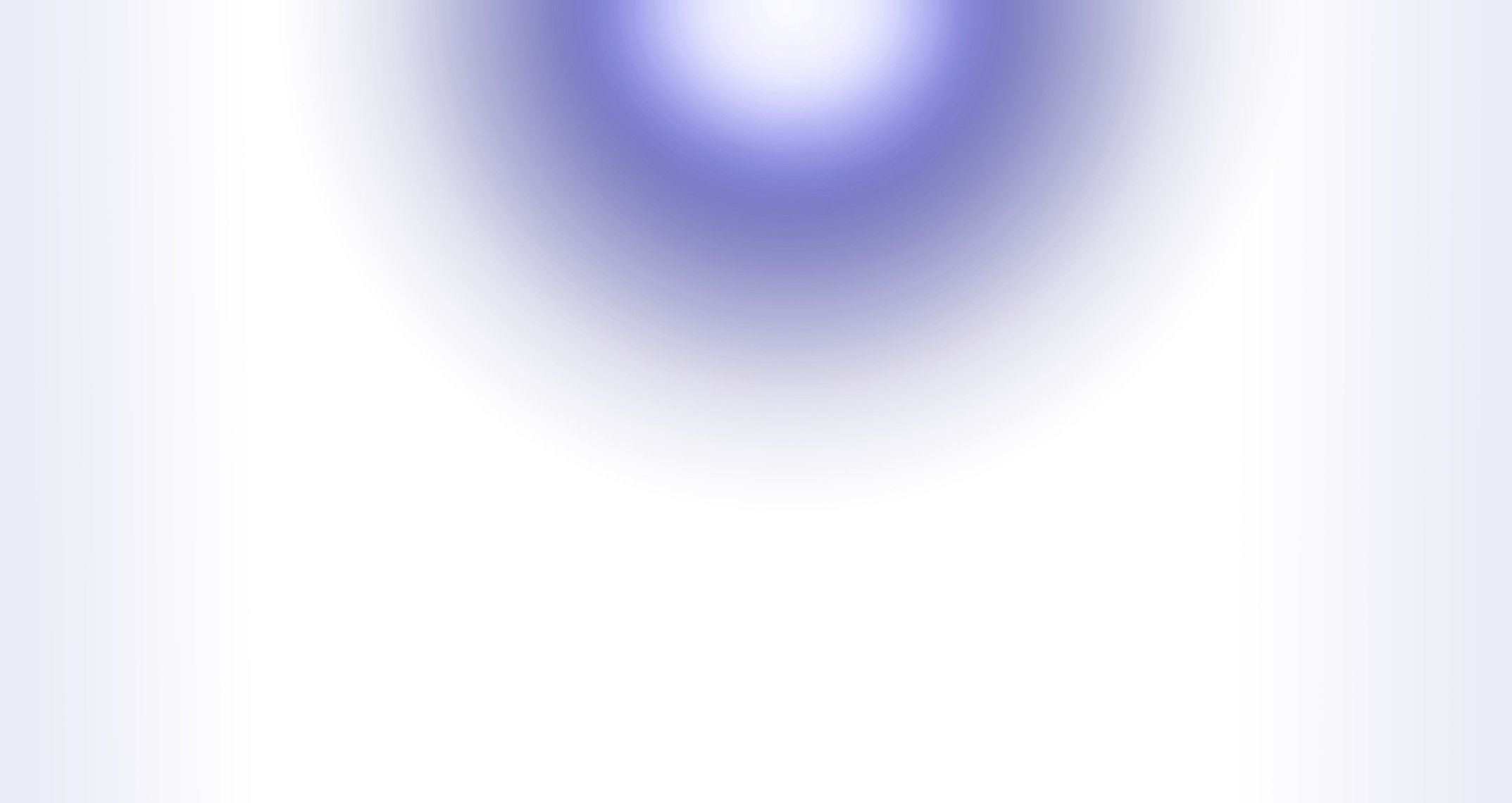
blog
FAQ
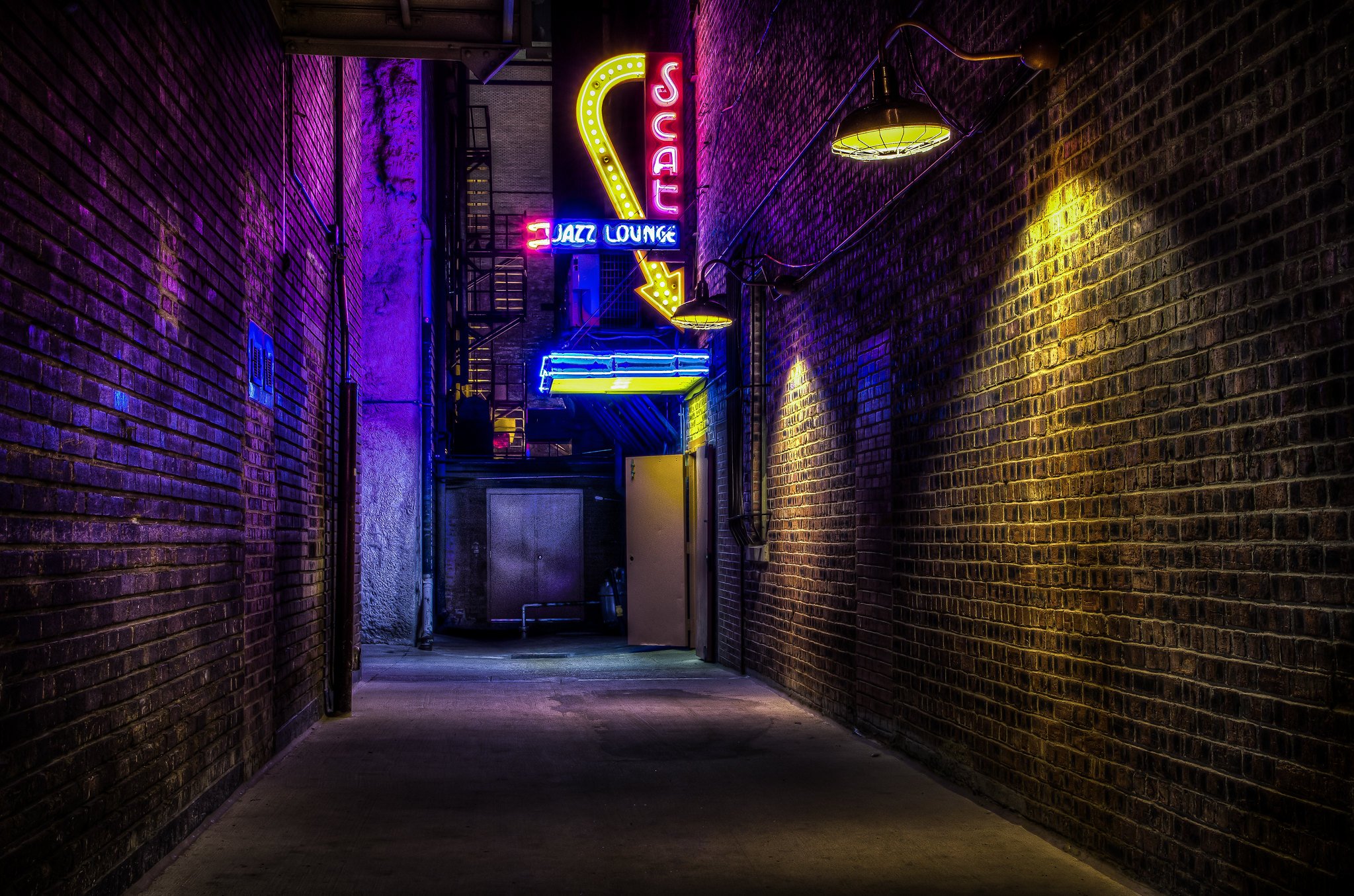
Visit my Substack: Hive Being
Visit my Substack: Hive Being

Don’t let anyone tell you that real life is lacking in poetic interest. This is exactly what the poet is for: he has the mind and the imagination to find something of interest in everyday things. Real life supplies the motifs, the points that need to be said—the actual heart of the matter; but it is the poet’s job to fashion it all into a beautiful, animated whole. You are familiar with Fürnstein, the so-called “nature poet”? He has written a poem about growing hops, and you couldn’t imagine anything nicer. I have now asked him to write some poems celebrating the work of skilled artisans, in particular weavers, and I am quite sure he will succeed; he has lived among such people from an early age, he knows the subject inside out, and will be in full command of his material. That is the advantage of small works: you need only choose subjects that you know and have at your command. With a longer poetic work, however, this is not possible. There is no way around it: all the different threads that tie the whole thing together, and are woven into the design, have to be shown in accurate detail. Young people only have a one-sided view of things, whereas a longer work requires a multiplicity of viewpoints—and that’s where they come unstuck.—Goethe (Conversations with Eckermann)
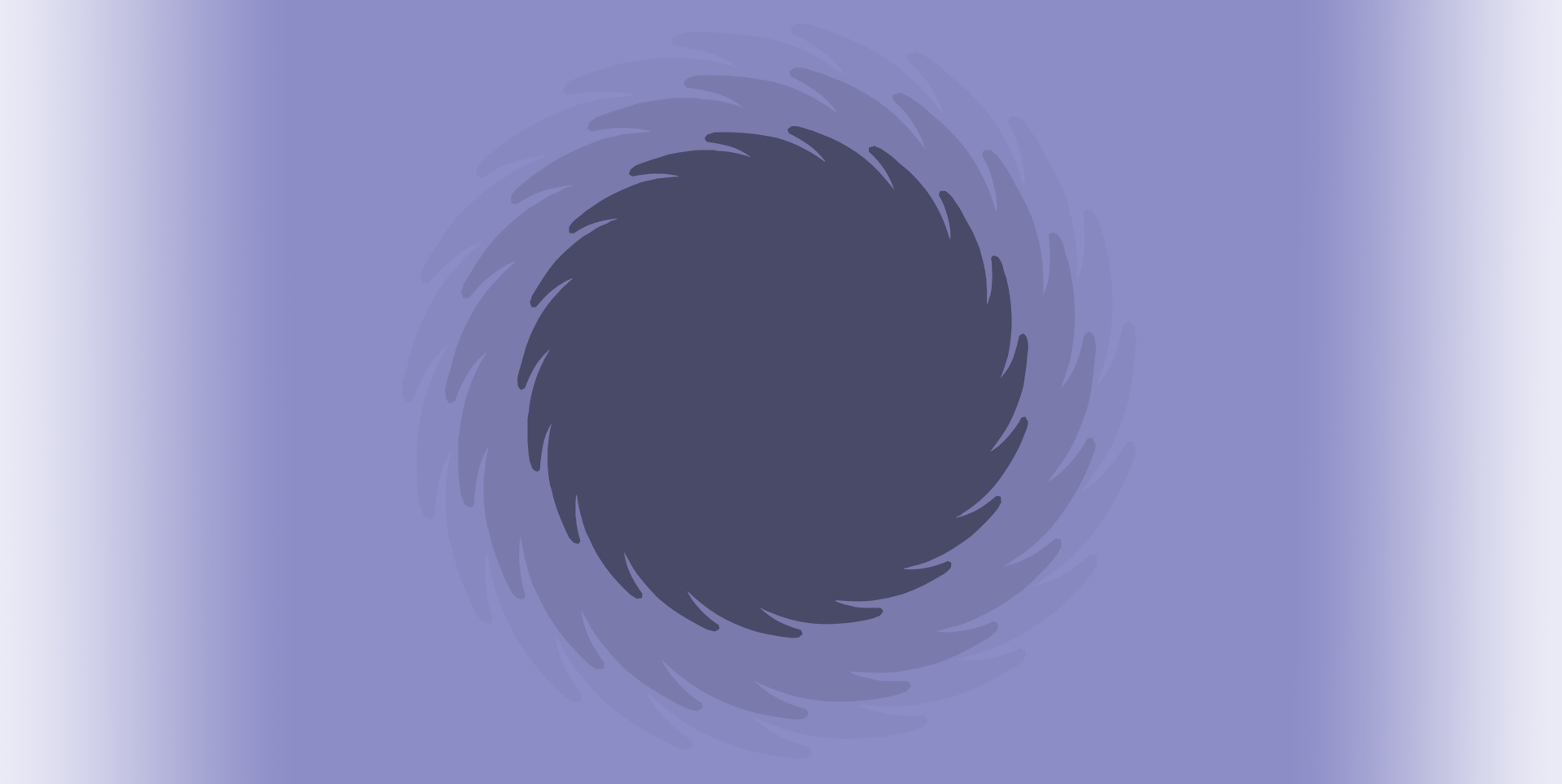
Featured Blog Posts
have appeared last night—
all those met along the way?
























